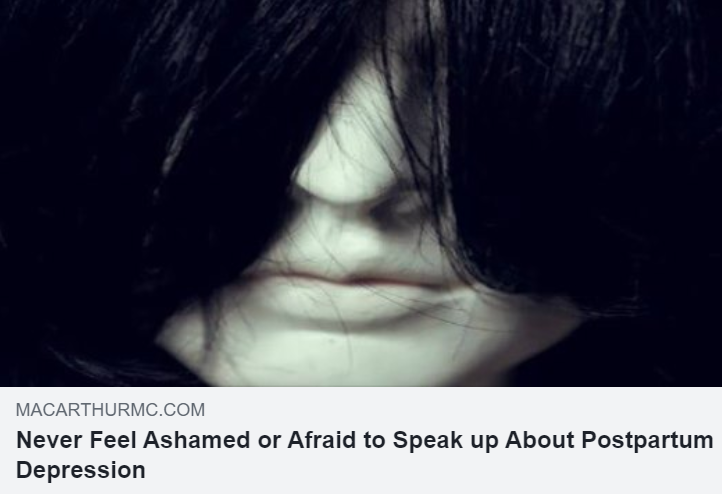Better Care is Needed for Postpartum Depression
A doctor learns to ask the right questions to help patients get the help they deserve.
A nurse
She was a nurse. I worked with her daily. She was my friend and also my patient. Happily married. Perfect pregnancy. Easy delivery.
How did I not recognize she was suffering from postpartum depression?
She could not get out of bed. Although madly in love with her baby, dark and dangerous thoughts filled her head. Each day she forced herself out of bed. She cried daily. The stress of hiding her depression from her husband was tearing her marriage apart.
One year later, she confessed. During her annual exam, she revealed all that she had been through. Struggling in silence. Sharing with no one. She was miserable.
I am the doctor she trusted. Once I knew of her illness, she got better. Why did I not catch it sooner?
I didn’t ask. She didn’t say.
I’m sorry.

Photo by Thibault Debaene on Unsplash
A teen mother
She was a 17 years old child. She and her newborn lived with her mother and mom’s four other children. She grew up without a father. The father of the baby was long gone. Her house was full of family, but she was living all alone.
Four years later, she is pregnant again. She shares with me her fear of having postpartum depression again. She cried as she explained the terrifying thoughts of hurting her baby that flooded her mind after her delivery. She loved her baby. She asked what was wrong with her for thinking this way.
All the risk factors for postpartum depression were right there in front of me four years ago. How did I miss it?
I didn’t ask. She didn’t say.
I’m sorry.

Photo by Dane Deaner on Unsplash
A high-level executive
She was a senior vice president of a large tech company. After years of infertility treatment, she and her husband got pregnant. Always the overachiever, she was not pregnant with one baby. She had twins. During her six-week postpartum visit, she told me she was getting divorced. I was surprised. On the surface, they seemed like the perfect couple. Was postpartum depression a factor?
I didn’t ask. She didn’t say.
I’m sorry.
Depression has many faces
One patient’s husband had an affair. Another struggled with her teenager’s rebellion. One lost her job for not showing up for work. Another couldn’t pay her bills. Another repeatedly came to the office for various vague abdominal pains.
I didn’t ask. They didn’t say.
I’m sorry.
Postpartum depression is real
One in seven women suffers from postpartum depression. I had been treating it throughout my career. I caught the easy cases. I helped them, and they got better.
The world of women’s health has started paying more attention to the 4th trimester. I realized I was missing the harder to spot cases. I had overlooked the subtle clues that were there along. I had underestimated the efforts patients would take to hide their mood disorder. Shame, fear of being judged, and embarrassment forced those suffering from postpartum depression to hide alone in the dark.
We implemented universal screening
We added universal screening for postpartum depression to our office protocol. The Edinburgh Postnatal Depression Scale (EPDS).
This simple tool made it safe to step into the light. Each patient fills out a simple questionnaire. The score is not diagnostic, but the questions open a window and an opportunity for dialogue. The tool triggers me to ask the right questions. Five min can change someone’s life.
My eyes are now open to the prevalence of postpartum depression and the subtle ways people hide it. It also revealed to me that these cases were there all along.
They wanted to talk, and I wanted to listen.
I just didn’t ask, and they didn’t say.
A new approach
Universal screening opened a window and shed light on postpartum depression. I have changed my approach. I am asking the right questions. Now we are talking. Patients are speaking up.
I asked. You answered.
I’m so thankful.
You are not alone.
Never be afraid to talk about postpartum depression.
Blog By: Dr. Jeff Livingston
Blog Photo By: Photo by Ani Kolleshi on Unsplash














